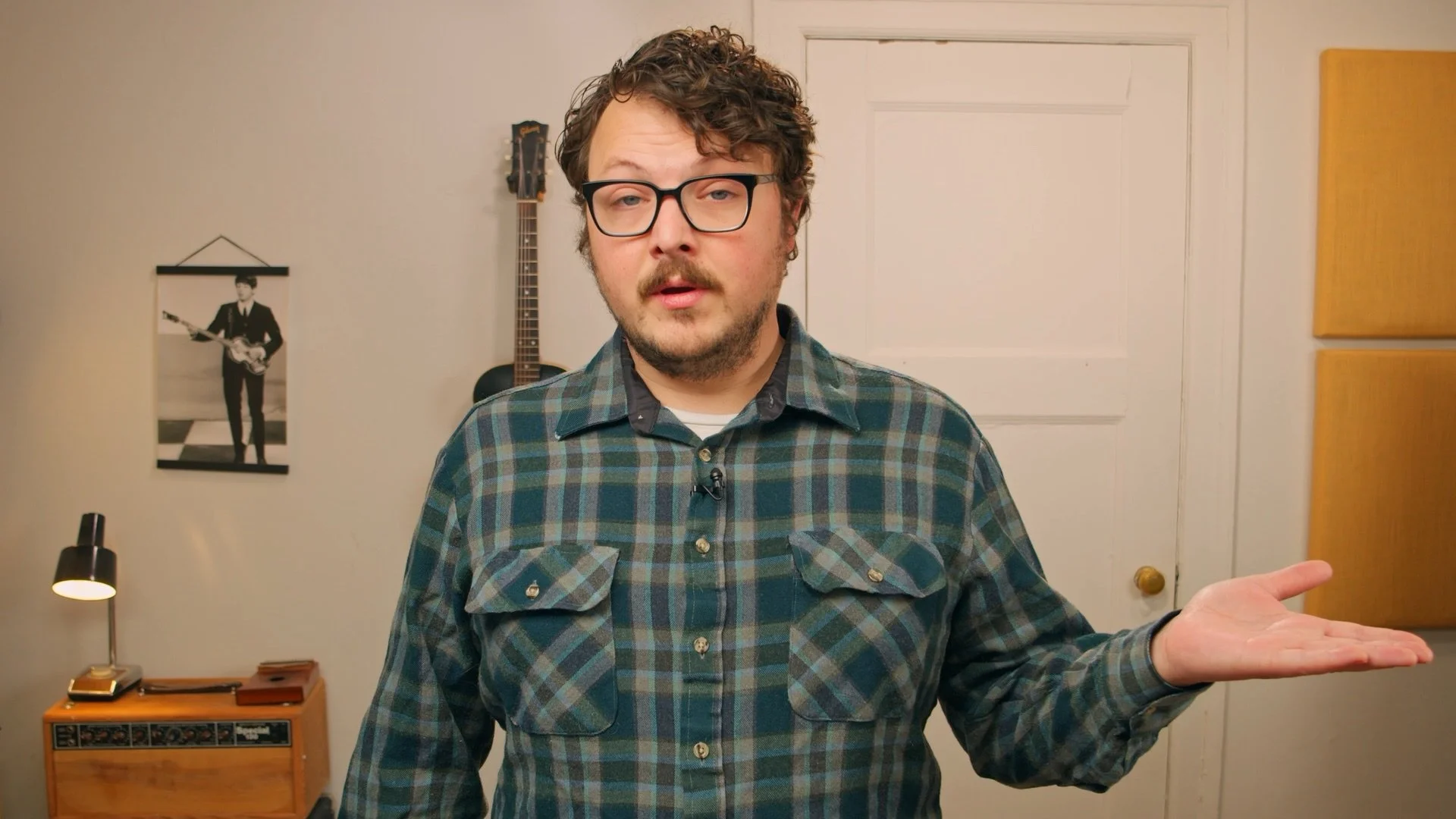Songwriting Starting Points
This is a concept I haven't seen many people talk about, but it feels like an important one.
Generally speaking, I've noticed that a lot of people tend to fall pretty hard into one of two camps, and sometimes people aren't even AWARE of the other camp!
1. Transcribing
Some people think that a musician will just "hear" a mostly complete song in their head and then sit down with a guitar to figure out how it goes. The better you are at figuring out songs by ear, the better you'll be at writing songs. There are a few well-known artists that perpetuate this idea of writing music. Mozart tended to be like this, and many other artists had experiences like this. Paul McCartney supposedly woke up with part of the melody for "Yesterday."
2. Exploring
Others think that you have to just try tinkering, exploring, adjusting, massaging until - eventually - you stumble upon something nice. Beethoven was notorious for tinkering and massaging. If you start off with something in your head, you're not really "writing music."
My goal with this video is basically to let you know these stereotypes exists and THEN to have you ask: Which camp do I relate with? Did I know about these camps?
If you've been writing for a while, it's probably helpful to think about what assumptions you've made about writing music, and THEN work to be a well rounded musician.
If you're more of a transcriber, I recommend trying to explore more often. Sit down to write without any ideas in your head. Pick a key and tinker with chord progressions, melodies or riffs - whatever! As long as you're not trying to think of something FIRST and then playing it.
If you're more of an explorer, try imagining an interesting chord progression or melody. Even picturing a concept, like "I want to try a melody with lots of space, and big jumps" is a helpful way to start hearing a melody idea in your head. Also, figuring out songs by ear (aka transcribing parts) is a valuable skill regardless of wether you'll ever be someone who hears full songs in your head.
Leave a comment sharing your experience - which camp do you find yourself in?
Read More
















